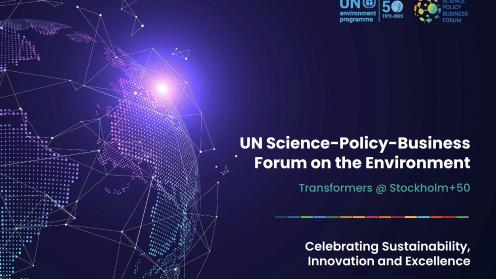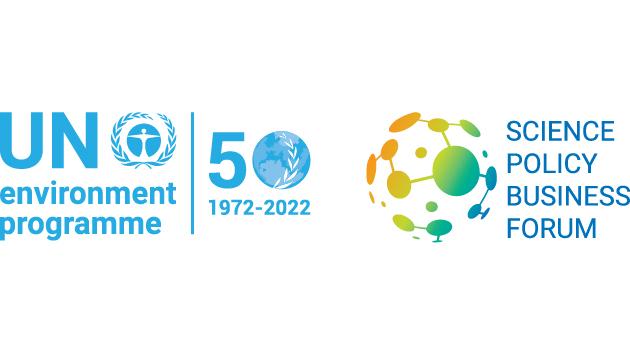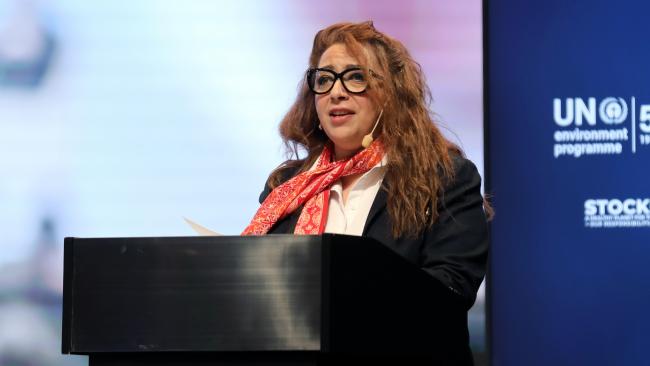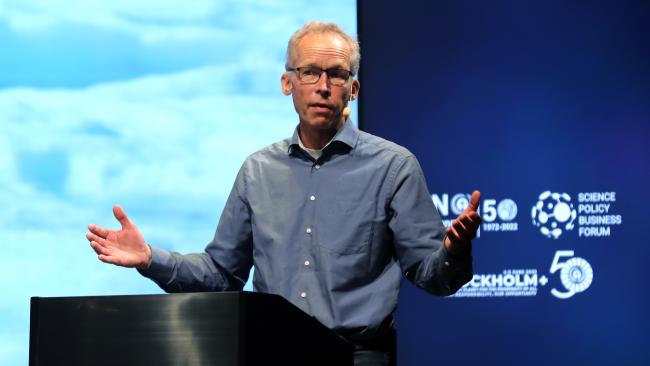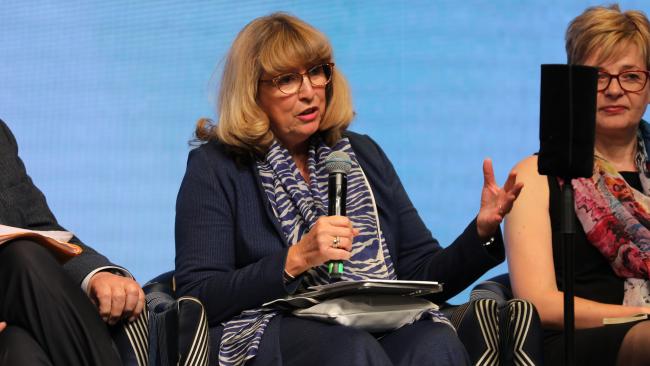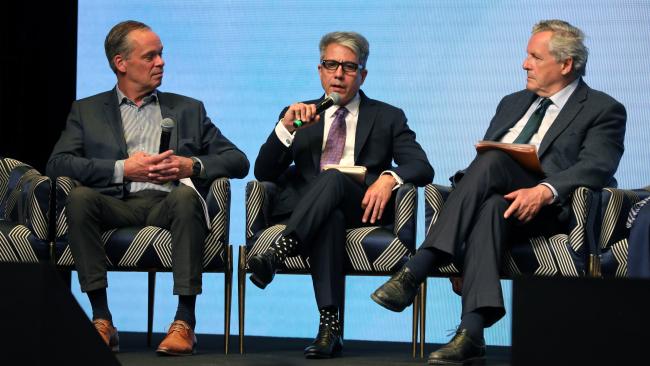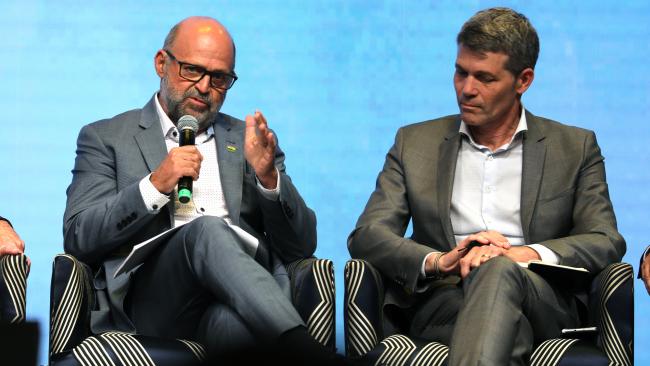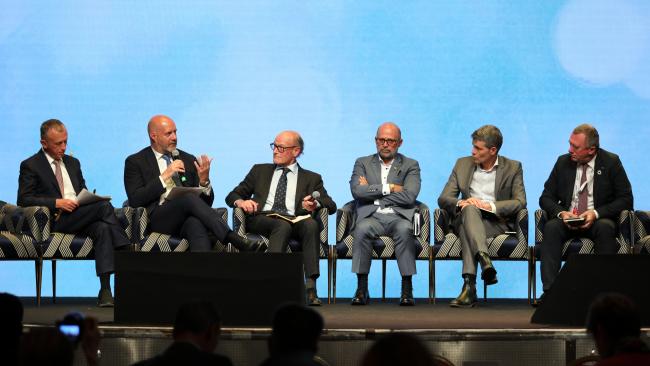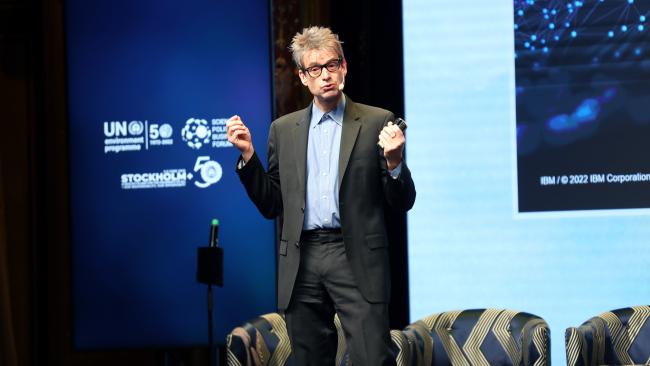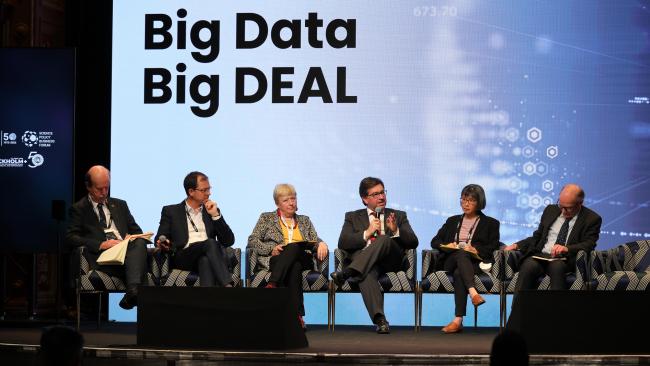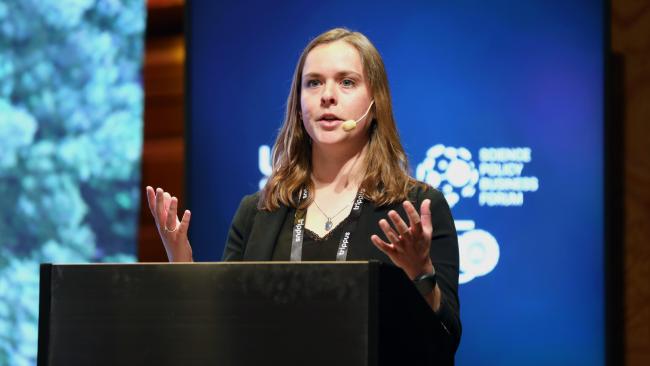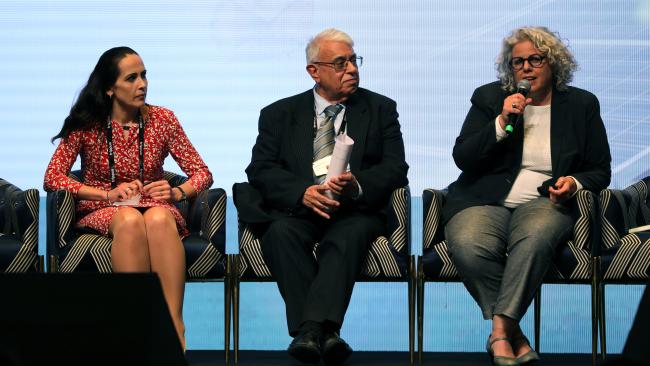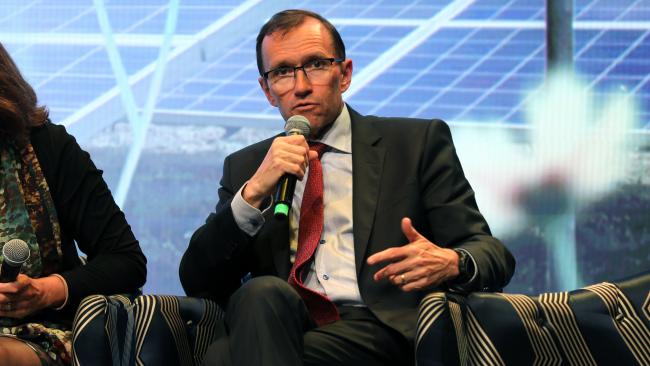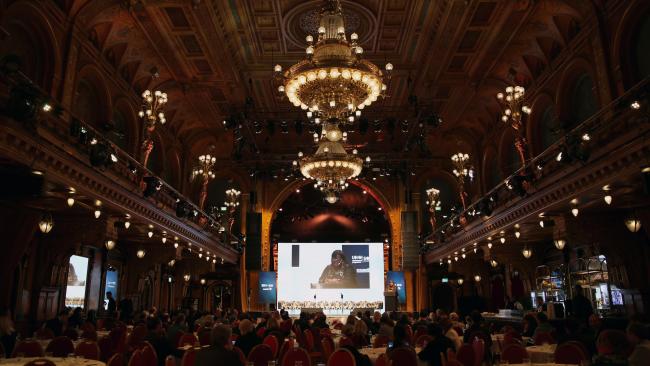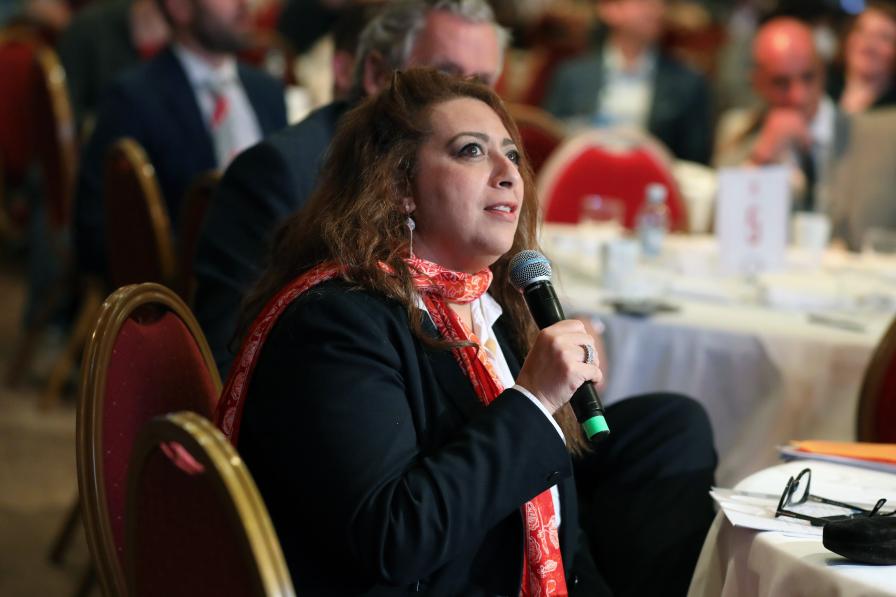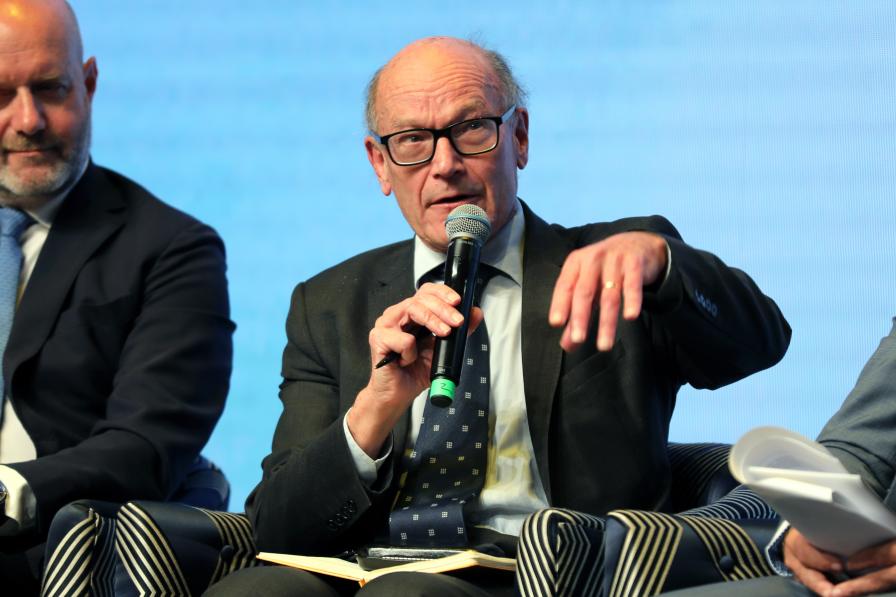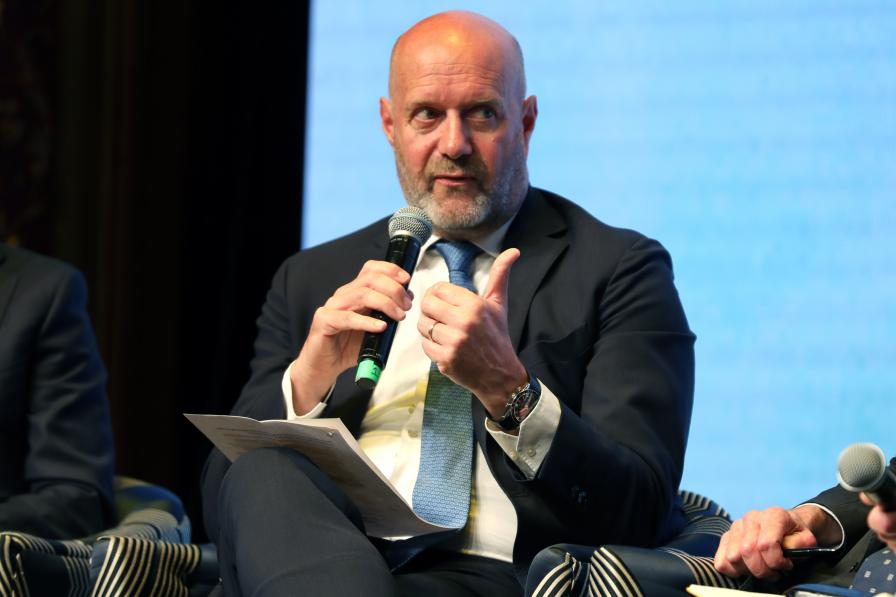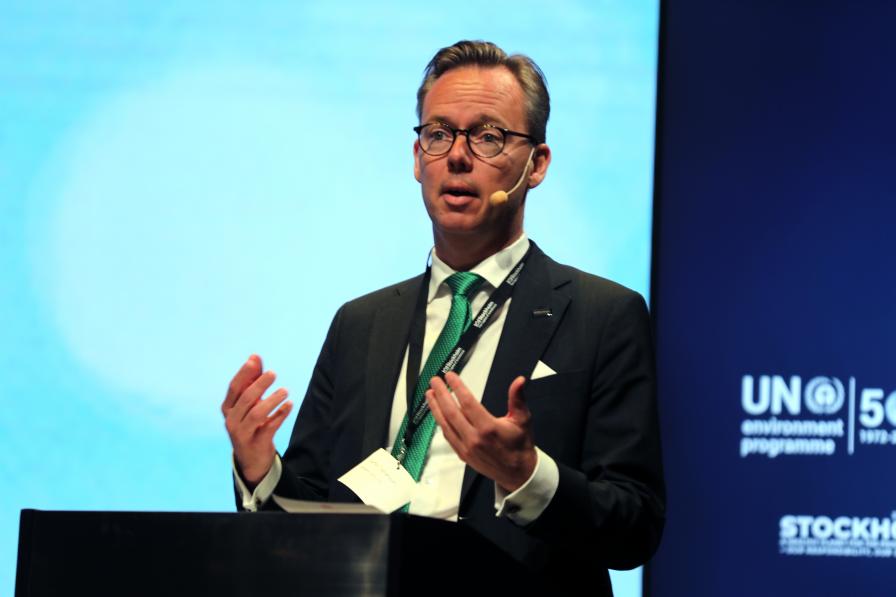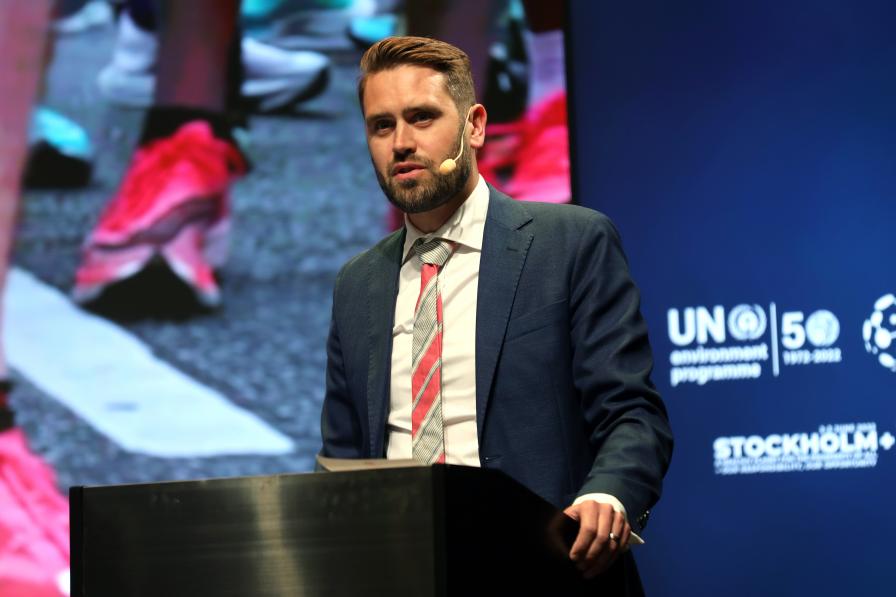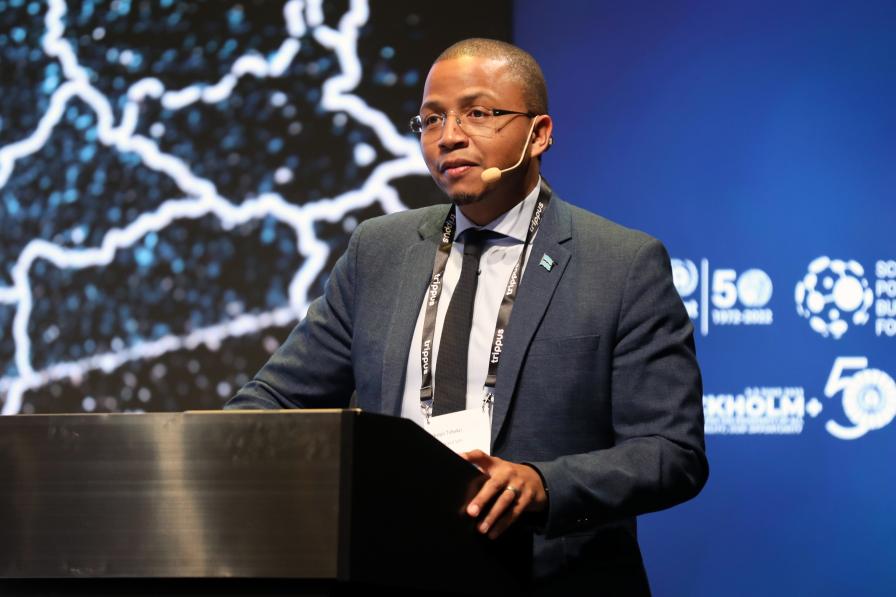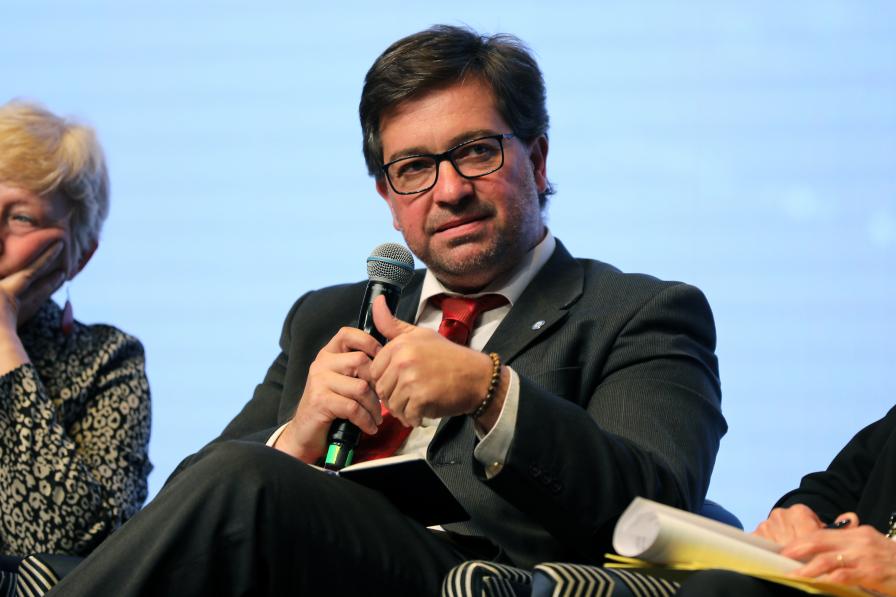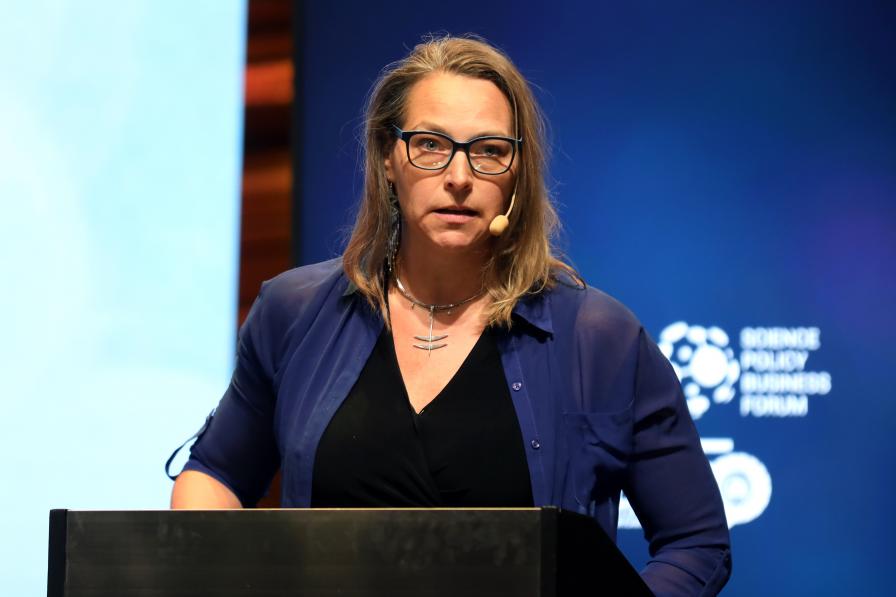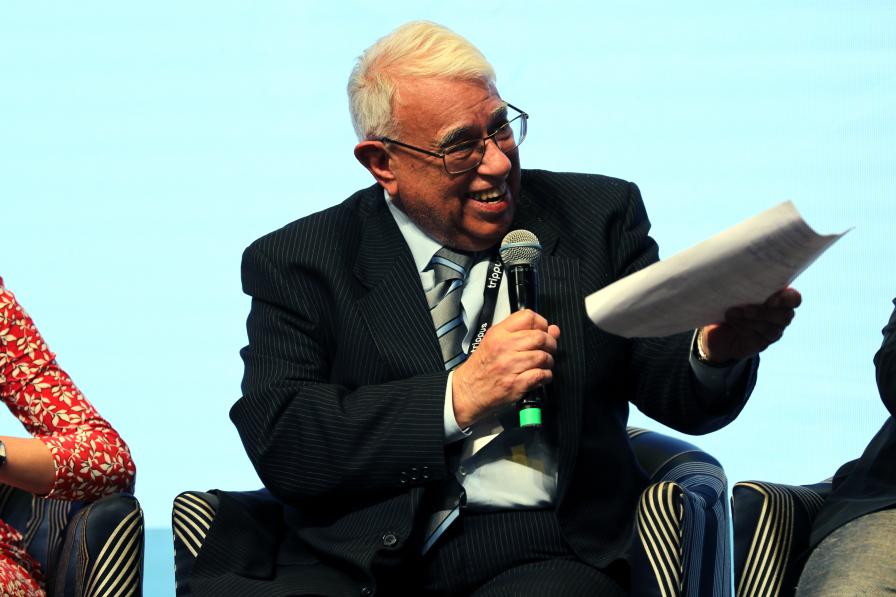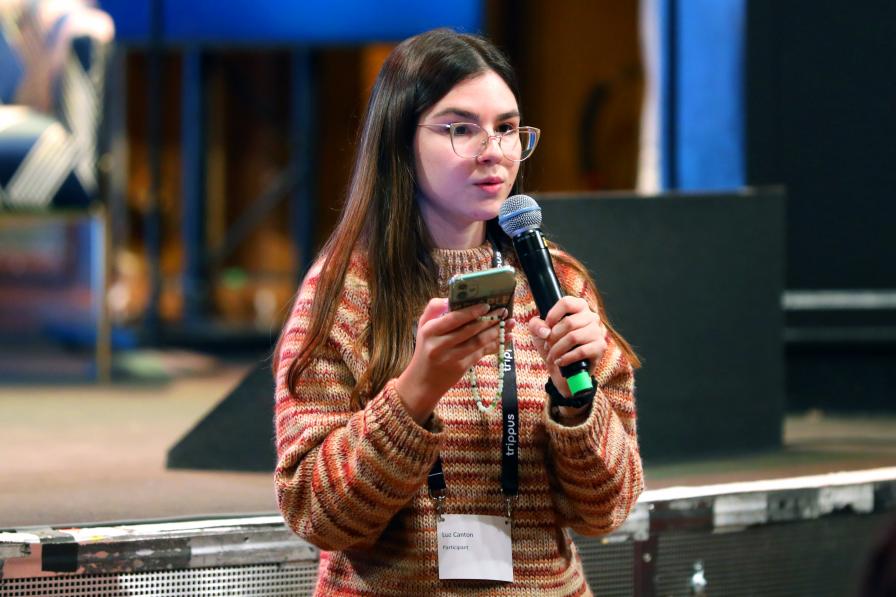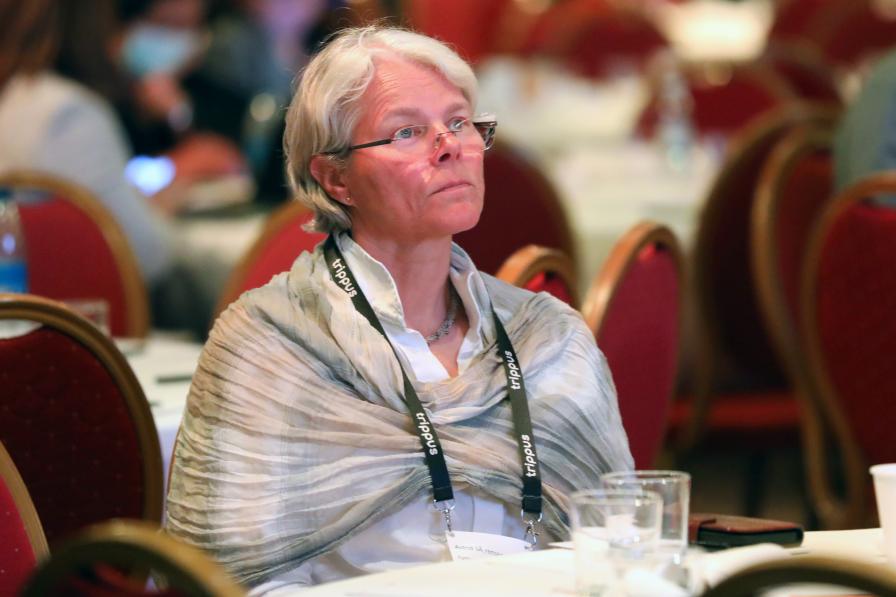As the world starts to gather for the Stockholm+50 commemoration, the fourth Global Session of the UN Science-Policy-Business Forum (UN-SPBF 2022) opened to discuss the transformative actions required to put the world on track to meet environmental goals. Participants traversed a wide range of topics, such as the role of multilateralism, moving beyond gross domestic product (GDP) and financing the Sustainable Development Goal (SDGs), the role of big tech, and the future of energy. These discussions explored how different sectors will help us move the needle.
High-Level Opening
Axel Threlfall, Thomson Reuters, moderated the session.
Shereen Zorba, Head of the UN-SPBF Global Secretariat, stressed the need to find ways to make international commitments translate into real transformation in a fair and equitable way.
Sonja Leighton-Kone, Acting Deputy Executive Director, UN Environment Programme (UNEP), encouraged thinking about the policies, financial mechanisms, and incentives required to transform sectors and tackle the triple planetary crisis.
In a video message, Abdulla Shahid, President, 76th session of the UN General Assembly, prioritized equitable access to technology for developing countries, transition to cleaner production processes, and sustainable business practices.
Collen Vixen Kelapile, President, UN Economic and Social Council (ECOSOC), stressed the need for wise use of science and technology and equitable sharing of benefits.
Johan Rockström, Director, Potsdam Institute for Climate Impact Research, said science has provided the evidence for sustainability pathways and now it is time to deliver on the transitions needed.
Reimagining Multilateralism and Bridging the Implementation Gap
Sébastien Treyer, Director, Institute for Sustainable Development and International Relations (IDDRI), noted challenges, including: working on the economic transformation to achieve the net zero carbon goal; and fully involving multinational corporations and civil society in the dialogue.
Maria Ivanova, Director, Center for Governance and Sustainability, University of Massachusetts Boston, called for focusing on improving how UNEP fulfills its original mandate as a small, agile entity catalyzing action and promoting collaboration.
Astrid Schomaker, Director for Global Sustainable Development, European Commission, identified challenges to the current multilateral environmental governance system, including addressing issues around fragmentation and inclusiveness.
Noting the well-known impact of conflicts on the environment, Alain Le Roy, French Association for the UN and former UN Under-Secretary-General for Peacekeeping Operations, said the key is to reduce the number and intensity of conflicts.
Harry Verhaar, Head of Global Public and Government Affairs, Signify, noted his company’s commitments to achieve the SDGs and its work with local governments—“where the action is”—to get things done.
Steven Kukoda, Executive Director, International Copper Association, observed governments still do not take a balanced view of extractive industries.
Biao Yang, Secretary General, SEE Foundation, highlighted the Foundation’s work on greening supply chains and promoting low-carbon trade in China.
Dominic Waughray, Senior Advisor to the CEO, World Business Council on Sustainable Development, suggested sustainable development requires making circularity work at scale across borders and unlocking finance through the creation of a new asset class.
Future Economy
Christopher Hurst, Director General, European Investment Bank, said it is clear fossil fuel subsidies must be phased out.
Romina Boarini, Director, Centre for Well-being, Inclusion, Sustainability and Equal Opportunity, Organisation for Economic Co-operation and Development (OECD), provided an overview of how policy tools for well-being, as part of “beyond-GDP measurement,” are being used in governance and policy design.
Eric Usher, Head, UNEP Finance Initiative, said there is a need to regain purpose in the industry to move towards responsible banking.
Lee White, Minister of Water, Forests, the Sea and Environment, Gabon, demonstrated the political leadership Gabon has shown in becoming a carbon-positive country.
Carlos Manuel Rodriguez, CEO, Global Environment Facility (GEF), said strengthening institutions alone will not achieve sufficient change, but also requires agencies that work at the landscape and seascape levels.
Paul Ekins, University College London, stressed the need for a system promoting clean, green finance.
Nicola Villa, Executive Vice President, Mastercard, noted his company’s work around achieving the SDGs, particularly on financial inclusion.
Lina Maria Montoya, Bancocolombia Group, spoke on Bancocolombia’s work to build sustainable cities and communities and promote financial inclusion and wellbeing.
Big Tech for the Planet
Tshepo Tsheko, CEO, Botswana Digital and Innovation Hub, highlighted the continent’s rich biodiversity and human potential, calling for digital connectivity, capacity building, and empowerment through partnerships with big tech.
Hendrik Hamman and Christina Shim, IBM, presented on IBM’s strategies and activities for sustainability.
Paul Ekins noted that data is lacking for 68% of the environmental indicators of the SDGs.
Alexandre Caldas, UNEP, highlighted the need for building capacities to use technology, promoting partnerships, and using data to provide foresight and early warning.
Frederic Bretar, Space Climate Observatory (SCO), explained SCO seeks to collaborate on the use and validation of the wealth of Earth observation data to provide a clearer overview of climate change.
Kaja Tael, Ambassador at Large for Climate and Energy Policy, Estonia, said the Data for the Environment Alliance (DEAL) addresses the need for accessible, quality basic data on the environment that policymakers can base their decisions on.
Martin Brocklehurst, Chair, Interim Board, Citizen Science Global Partnership, urged governments and UNEP to engage more with citizen science.
Edan Dionne, Vice President, IBM, reviewed the Responsible Computing framework.
Jonathan Lett, Director, Lett Holdings Ltd, Tommy Lexen, Managing Director, and artist John Munro discussed the digital audiovisual composition “50/50” that will be unveiled on Wednesday.
Anna Williams, Geo for Everyone, Google, explained EIE uses Google data sources and modeling capabilities in a freely available platform to help cities and regions to, among others, measure emission sources.
Trista Patterson, Microsoft, discussed the objectives of the Playing for the Planet Alliance bringing together 36 major video game companies to integrate green activations in games, reduce their emissions, and support the global environmental agenda.
Margaret O’Toole, Worldwide Tech Leader Sustainability, Amazon Web Services (AWS), said technology will be one of the key tools to help drive a sustainable transformation.
Sandra Karlsson, Head of Public Policy, Sweden AWS, said the twin transitions of digitalization and sustainability are mutually supportive.
Ana Pinheiro Privette, Global Lead, Amazon Sustainability Data Initiative, underscored the role of partnerships to disseminate and use data.
The Future of Energy
Rana Adib, Executive Director, REN21, said a system change is needed to end fossil fuels.
Howard Bevan, Former Director of Energy, Al-Attiyah Foundation, focused on Qatar’s efforts, including on natural gas, methane monitoring, and building a knowledge economy.
Gulnara Abdullina, LONGi Solar, stressed that solar applications in Europe need to co-exist with agricultural production.
Espen Barth Eide, Minister of Climate and the Environment, Norway, noted there will be a significant space for clean hydrogen in the energy transition.
Barbara Jinks, International Renewable Energy Agency (IRENA), said Sub-Saharan African has the greatest potential for green hydrogen but lacks infrastructure, policies, and investment.
Asgeir Tomasgard, Norwegian University of Science and Technology Energy Transition Initiative, stressed the need to build the green hydrogen demand side at the same time as the supply side.
Per Sandberg, Equinor, called for focus on the entire hydrogen value chain, including distribution, storage, use, and safety.
James Mnyupe, Presidential Economic Advisor, Namibia, presented on Namibia's green hydrogen production project as part of the economy’s industrialization and sustainable development.
Bjørn Simonsen, CEO, Saga Pure, underscored the need to combine industry expertise with finance.
Zhang Cunman, Professor, Tongji University, China, presented on China’s approach to green hydrogen as a path towards the energy transition.
A youth representative from Argentina drew attention to Equinor’s offshore seismic exploration in Argentina, which has caused major opposition from the public.
To receive free coverage of global environmental events delivered to your inbox, subscribe to the ENB Update newsletter.
Selected Images
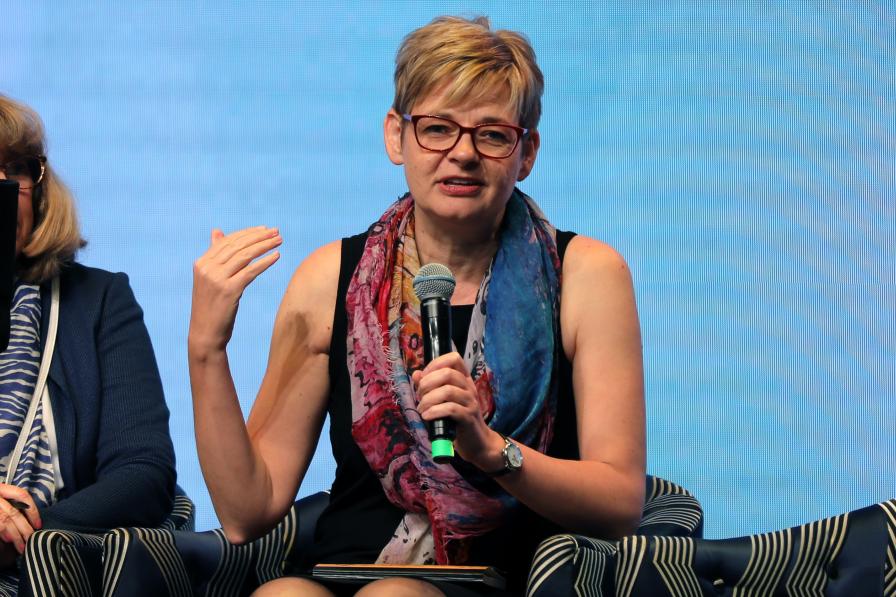
Maria Ivanova, Director, Center for Governance and Sustainability, University of Massachusetts Boston

From L-R: Asgeir Tomasgard, Director, Norwegian University of Science and Technology Energy Transition Initiative; Barbara Jinks, Programme Manager, Green Gas Delivery and Use, IRENA; and Espen Barth Eide, Minister of Climate and the Environment, Norway
